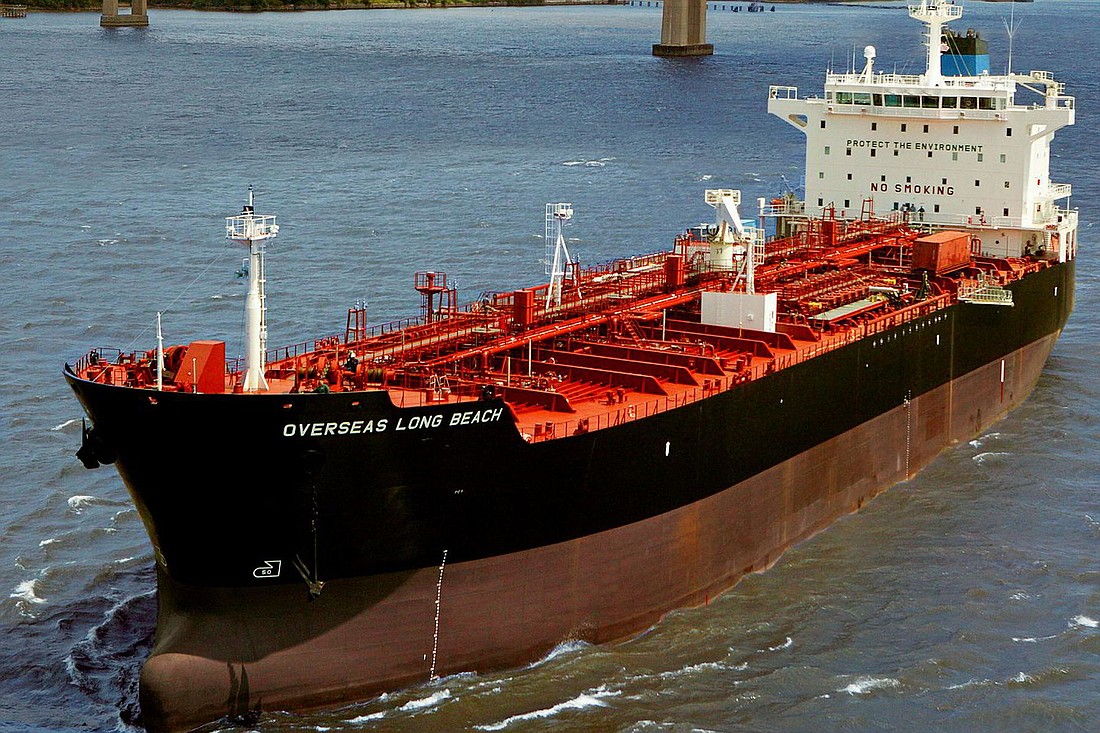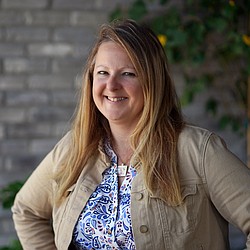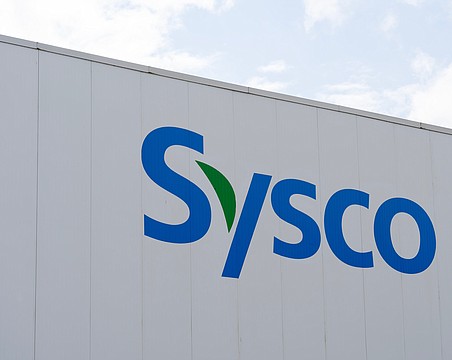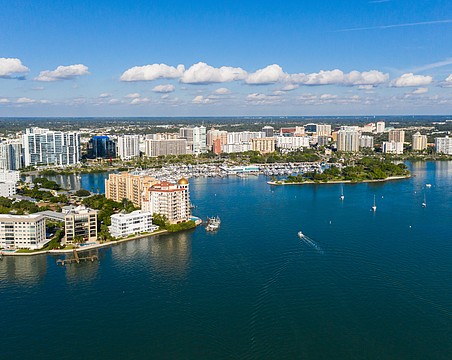A Tampa shipping company was recently awarded $3 million to develop a solution for transporting liquid carbon dioxide that officials say will help Florida reduce its carbon footprint.
Overseas Shipholding Group received the grant from the United States Department of Energy toward the engineering and design of a new vessel. The company plans to design an articulated tug and barge unit that will take carbon dioxide captured in the Greater Tampa Bay region and across Florida to sequestration sites in Gulf of Mexico, according to a statement from Overseas Shipholding Group. It would also transport carbon dioxide collected at the planned Tampa Regional Intermodal Carbon Hub.
The intermodal carbon hub is being developed at the Port of Tampa Bay through a $400,000 grant the U.S. Department of Energy announced in December to fund the study of a facility to receive, store and process 2 million metric tons of carbon dioxide per year that could be scaled to meet greater volume in the future, the statement says.
“Florida has the country’s fourth largest CO2 emissions from power generation and industrial facilities but has no pipeline system capable of transporting captured CO2 out of state,” Jeff Williams, director of CO2 transport solutions for Overseas Shipholding Group, says in a statement.
The new intermodal hub and vessel will aim to solve that problem; once the carbon is captured at the Tampa Regional Intermodal Carbon Hub, it would be taken away by the tug and barge. Liquified carbon dioxide would be delivered to the northern Gulf of Mexico, which Williams says has the “largest confirmed capacity for safe, deep, permanent underground sequestration of captured CO2.”
Together, the intermodal carbon hub plus the tug and barge unit offer a “comprehensive solution for Florida’s largest emitting industrial facilities to be part of the nation’s response to the impacts of climate change to which Florida’s residents and sensitive ecosystems are most vulnerable,” Williams says.
The effects of the two projects are far-reaching, Williams says, and will "help accelerate the adoption of carbon emission reduction plans in Florida, result in improved health of affected communities, create hundreds of new jobs, and bring innovative and transformative technologies to Florida.”
Capturing and disposing of carbon is in line with the national initiative to reduce carbon emissions as well as with the mission of Overseas Shipholding Group, a publicly traded company that provides liquid bulk transportation services, specifically crude oil and petroleum.
“Transporting liquified CO2 is a natural next step into an exciting emerging market, consistent with OSG’s expertise with liquid cargoes,” Overseas Shipholding Group President and CEO Sam Norton says in a statement.
“The Department of Energy has encouraged the development of carbon capture and storage systems as part of the United States’ goal to reduce CO2 emissions to achieve net zero carbon by 2050,” Williams says, adding the new vessel and carbon hub are expected to reduce carbon emissions by up to 30%.
Overseas Shipping Group, traded on the NYSE, had $451.87 million in revenue in 2023.







